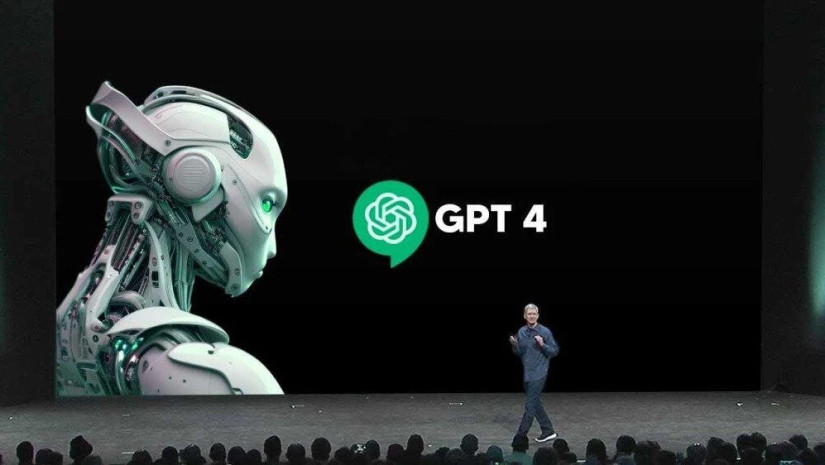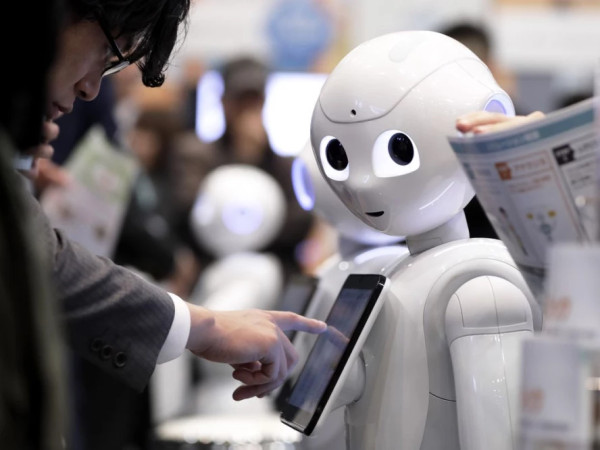OpenAI, the company behind the popular chatbot ChatGPT, has crunched the numbers on different jobs’ exposure to artificial intelligence (AI) - and those numbers are eye-opening.
Using its latest machine learning language model (LLM), the recently released GPT-4, as well as human expertise, researchers investigated the potential implications of language models on occupations within the US job market.
While the researchers stress the paper is not a prediction, they found around 80 per cent of the US workforce could have at least 10 per cent of their work tasks affected by GPTs, or Generative Pre-trained Transformers.
Around 19 per cent of workers meanwhile could see at least 50 per cent of their tasks impacted.
The paper, which was authored by researchers from OpenAI, OpenResearch, and the University of Pennsylvania, examines the "exposure" of work tasks to AI - "without distinguishing between labour-augmenting or labour-displacing effects".
The researchers defined “exposure” as a measure of whether access to a GPT-powered system could reduce the time it takes for a human to perform a specific work task by at least 50 per cent.
Which jobs are most 'exposed'?
For the study, human experts and the AI separately worked out the exposure of different occupations. The language model labelled 86 jobs as "fully exposed".
Fully exposed doesn’t mean the tasks can be fully automated by these technologies the authors note - but it means they estimate GPTs could save workers "a significant amount of time completing a large share of their tasks".
Humans labelled 15 occupations as fully exposed, while the language model labelled 86 as fully exposed.
The occupations that the humans found were 100 percent exposed are:
Mathematicians;
Tax Preparers;
Financial Quantitative Analysts;
Writers and Authors;
Web and Digital Interface Designers.
Other high percentage occupations listed by the humans were:
Survey Researchers (84.4);
Writers and Authors (82.5);
Interpreters and Translators (82.4);
Public Relations Specialists (80.6);
Animal Scientists (77.8).
The language models meanwhile listed the following as 100 per cent exposed:
Mathematicians;
Accountants and Auditors;
News Analysts, Reporters, and Journalists;
Legal Secretaries and Administrative Assistants;
Clinical Data Managers;
Climate Change Policy Analysts.
The language models also found these jobs to be more than 90 per cent exposed:
Correspondence Clerks;
Blockchain Engineers;
Court Reporters and Simultaneous Captioners;
Proofreaders and Copy Markers.
"We have observed that most occupations exhibit some degree of exposure to GPTs, with higher-wage occupations generally presenting more tasks with high exposure," the authors concluded.
Limitations of the study
The authors note a number of limitations of their study, with one, OpenAI researcher Pamela Mishkin, highlighting them in a Twitter thread.
"Today's GPTs can do a lot. Over the past few years we've seen them get better and better at solving more and more complex tasks with fewer and fewer examples of less and less related tasks," she posted.
The paper examines this trend not any particular model available today".
The first limitation identified was the fact their approach relied on the subjectivity of labelling, which could lead to biased judgments regarding GPTs’ reliability and effectiveness at certain work tasks within occupations unfamiliar to human researchers.
They also state that the GPT-4 outcomes are "sensitive to alterations in the rubric’s wording, the prompt’s order and composition," and other details in the prompt, which meant the human and LLM prompts differed.
Furthermore, the authors admit it is unclear to what extent occupations can be entirely broken down into specific tasks, and if this approach omits certain categories of skills or tasks necessary for the competent performance of a job.
Source: Euronews















